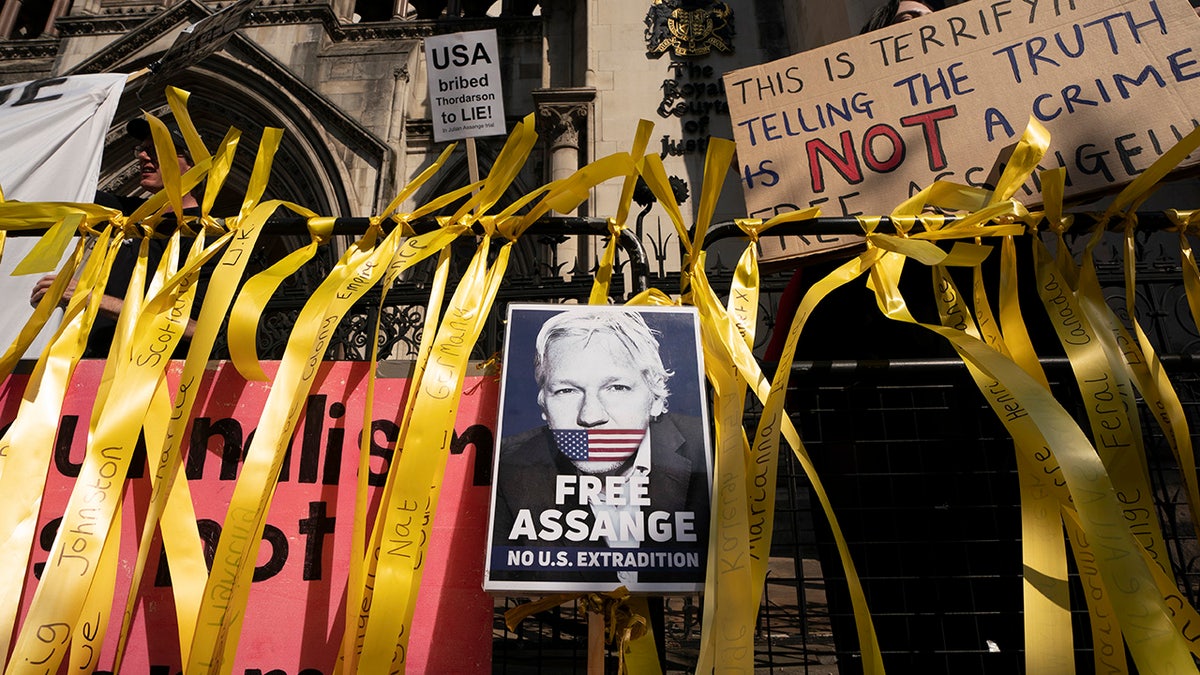Fox News Flash top headlines for December 9
Fox News Flash top headlines are here. Check out what's clicking on Foxnews.com.
An appellate court in London on Friday overturned a lower court's ruling from earlier this year and opened the door for Julian Assange to be extradited to the U.S. to face espionage charges.
An appeal is almost certain in a case that has attracted international attention. Assange's detractors see him as a traitor over his WikiLeaks’ publication of thousands of leaked military and diplomatic documents a decade ago. His supporters see his imprisonment as an affront against the free press.

FILE - Julian Assange greets supporters outside the Ecuadorian embassy in London, May 19, 2017. A British court on Friday ruled in favor of the U.S. (AP Photo/Frank Augstein, File)
A lower court judge refused an American request to extradite Assange to the U.S. to face spying charges. A judge said Assange, 50, who is currently being held at London’s high-security Belmarsh Prison, could kill himself if held under harsh U.S. prison conditions.

A supporter of Julian Assange hangs a banner outside the Royal Courts of Justice on December 10, 2021 in London, England. (Photo by Chris J Ratcliffe/Getty Images)
An attorney for the U.S. government who appealed the decision denied that Assange’s mental health was too fragile to withstand the U.S. judicial system and even assured the court that any sentence handed down could be carried out in an Australian prison.

Supporters gather outside as the High Court hears a US appeal in the extradition of WikiLeaks founder Julian Assange, at Royal Courts of Justice, Chancery Lane on August 11, 2021 in London, England. (Photo by Ming Yeung/Getty Images)
The appeals will likely end up in the Supreme Court.
Stella Moris, Assange's fiancée, told reporters that his legal team would appeal the court's decision, Reuters reported.
"How can it be fair, how can it be right, how can it be possible, to extradite Julian to the very country which plotted to kill him?" she said. "We will appeal this decision at the earliest possible moment."
The Associated Press contributed to this report








































